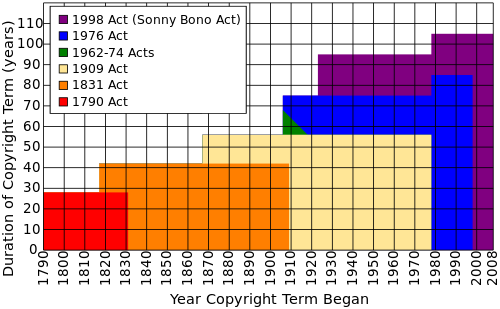Copyright law in the United States was originally intended to encourage the creation of new creative, scientific, and other original works by providing content creators with certain rights. [Wikipedia]
These rights include, but are not limited to:
Click here for the full text of the law 17 U.S. Code § 106.
Keep in mind that copyright is only limited to certain types of works including:
Copyright does not apply to any "idea, procedure, process, system, method of operation, concept, principle, or discovery, regardless of the form ... "
Copyright Basics - What Works Are Protected?
Click here for the full text of the law 17 U.S. Code § 102.
In general, when someone creates something, whether that is an epic poem, a business plan on a napkin, or a computer program, the creator automatically receives the rights and protections of copyright. The original author is the only person who can legally make copies, create other works based on this work, broadcast it, or post it online. Additionally, the original author may license or transfer their copyright to another individual.
However, copyright protection does not apply to works such as recipes, slogans, or things that have not been fixed into a tangible form. (Note: this can be digital)
From Wikipedia: "Copyright protection generally lasts for 70 years after the death of the author. If the work was a "work for hire", then copyright persists for 120 years after creation or 95 years after publication, whichever is shorter. For works created before 1978, the copyright duration rules are complicated. However, works created before 1924 (other than sound recordings) have made their way into the public domain." [Wikipedia]
Notwithstanding sections 106 and 106a, for purposes such as teaching, criticism, news reporting, scholarship, or research
Libraries and archives also get certain permissions to reproduce copyrighted materials under section 108. This enables libraries to share reproduce certain works within the confines of the law.
While the maximum duration of copyright has increased significantly over the years, a good rule of thumb is that copyright protections last until 70 years after the death of the author.
However, corporate works and works-for-hire are protected 95 years from the date of publication or 120 years from the date of creation, whichever expires first.

OF MISSOURI
Connect with us:
712 Lee Drive, Jefferson City, MO 65101 | 573-681-5504